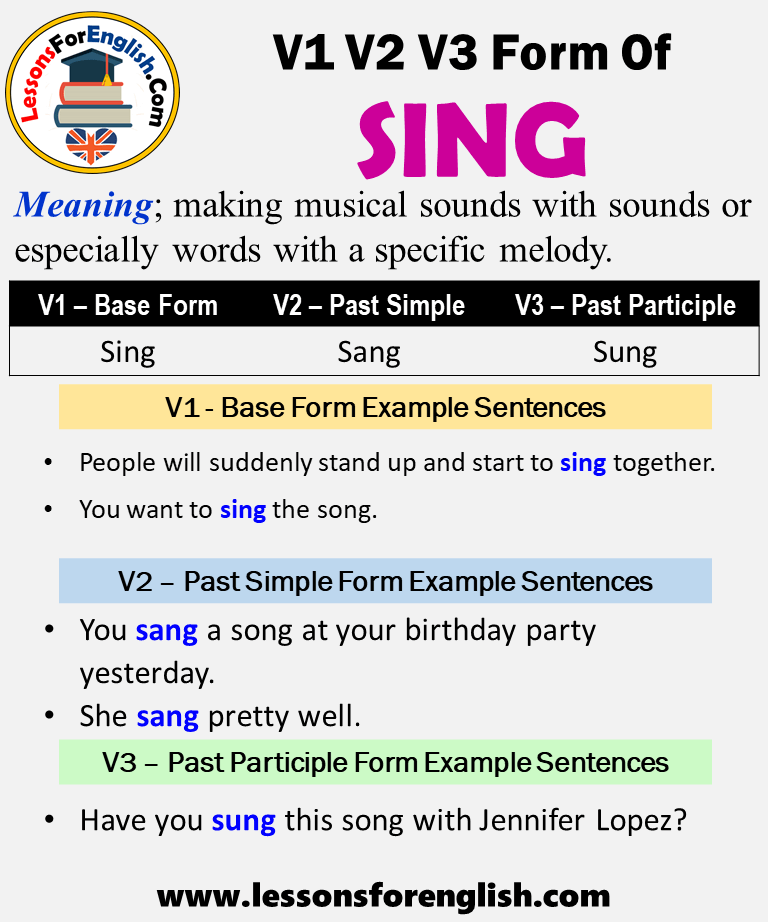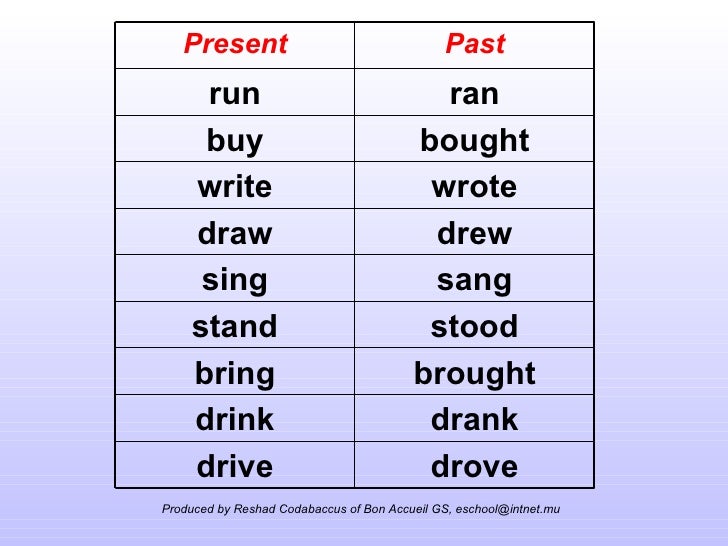


Rika Hayami-Allen (2001) A descriptive study of the language of Ternate, the northern Moluccas, Indonesia, University of Pittsburghįrom Proto-Vietic *t-ruːŋ.* m - masculine, f - feminine, † - archaic Atong-English dictionary, second edition. The present participle of bring is bringing. classifier for hollow cylindrical objects or tubes The third-person singular simple present indicative form of bring is brings.Often I have sung I had sung many times before being asked to. Please add to it, or discuss it at the Etymology scriptorium.). The simple past is sang and the past participle is sung. (This etymology is missing or incomplete. remembrance, thought, mind, brain, intelligence, spirit, life.For example, in 'boiled potato', boiled is the past participle of the verb boil, adjectivally modifying the noun potato in 'ran us ragged,' ragged is the past participle of the verb rag. A participle also may function as an adjective or an adverb. Please add to it, or discuss it at the Etymology scriptorium.) Noun In linguistics, a participle (ptcp) is a form of nonfinite verb that comprises perfective or continuative grammatical aspects in numerous tenses. The August Prince's First Officer sung a song although it was unaccompanied by dancing it was very delightful.Ītong (India) Etymology 1 The past perfect tense designates action in the past just as simple past does, but the past perfect’s action has been completed before. Most English tenses, as many as thirty of them, are marked by other words called auxiliaries. 1920, Annie Shepley Omori & Kochi Doi, "The Diary of Murasaki Shikibu" (translated), Diaries of Court Ladies of Old Japan, page 105 Only two tenses are conveyed through the verb alone: present (sing') and past (sang').Lulled by the Syren-song that my own heart sung to me, with eyes shut to all sight, and ears closed to all sound of danger, I drifted nearer and nearer to the fatal rocks.


 0 kommentar(er)
0 kommentar(er)
